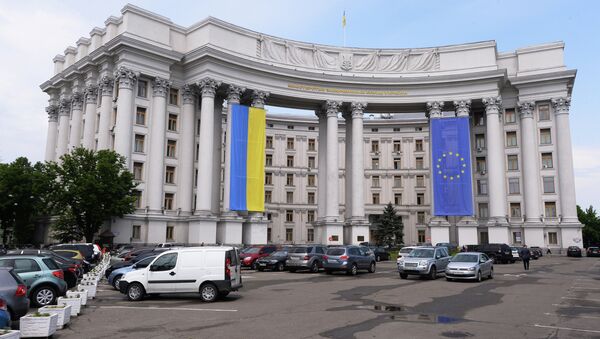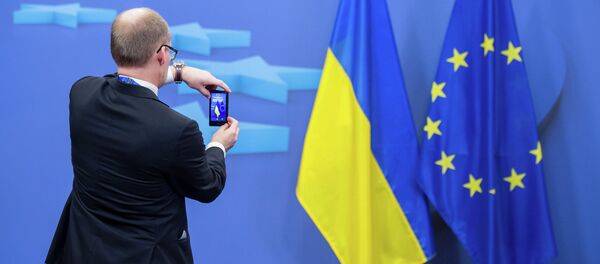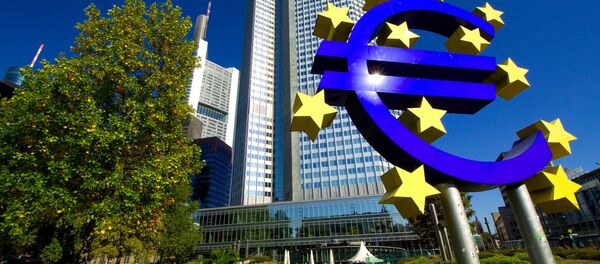"European citizens may be skeptical about financial aid to Ukraine, not because of austerity or bailouts, but because the levels of corruption in Ukraine are too high and the money may be misused and abused," Lecturer on European Politics at University of Surrey, Dr. Theofanis Exadaktylos, said Saturday.
Exadaktylos also noted that providing such aid would also "upset the relationship with Russia, as it could be perceived as direct intervention in the conflict in favor of Ukraine."
Europeans want to avoid antagonizing Moscow, according to Exadaktylos, because they need access to Russian natural resources.
"The dependence of Europe on Russian gas is an important factor to take into account and which limits the options that the EU has with respect to Russia," Exadaktylos said.
Despite these realities, European leaders have also had to deal with pressure from the United States to take some action, including providing financial support to Ukraine, in order to further American national interests, he added.
Director of the Initiative for Russian Culture at American University, Anton Fedyashin, also indicated that rampant corruption has made the European public reticent to pour more money into the coffers of Ukraine's corrupt government.
"Transparency International rates Ukraine as one of the most corrupt countries in the world. The Ukrainian political and business elites have been driving the economy into the ground for the past twenty-five years," Fedyashin said.
Not to mention that both post-Yanukovich (former president of Ukraine) governments decided to commit their meager financial resources to war instead of reforms, he added.
Ukrainian economy is now struggling as a result of the internal conflict, which erupted after Kiev launched a military operation against eastern Ukrainian independence supporters who refused to recognize the new government they believe to have seized power after a February coup. In an attempt to achieve the economic recovery, Kiev authorities have asked for international loans.
Earlier this year, the European Union adopted two Macro-Financial Assistance (MFA) programs of approximately 1.61 billion Euros ($2 billion) for Ukraine. The loans are intended to support Ukraine economically and financially, while encouraging structural reforms in the country.




